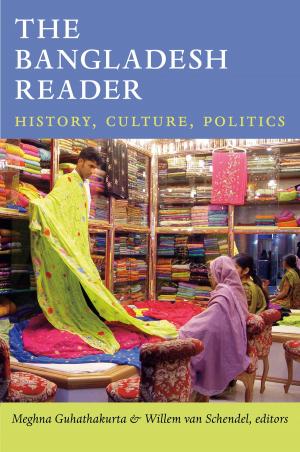| Author: | Rosalind O'Hanlon, Emma Jinhua Teng | ISBN: | 9780822386452 |
| Publisher: | Duke University Press | Publication: | January 31, 2005 |
| Imprint: | Duke University Press Books | Language: | English |
| Author: | Rosalind O'Hanlon, Emma Jinhua Teng |
| ISBN: | 9780822386452 |
| Publisher: | Duke University Press |
| Publication: | January 31, 2005 |
| Imprint: | Duke University Press Books |
| Language: | English |
From portrayals of African women’s bodies in early modern European travel accounts to the relation between celibacy and Indian nationalism to the fate of the Korean “comfort women” forced into prostitution by the occupying Japanese army during the Second World War, the essays collected in Bodies in Contact demonstrate how a focus on the body as a site of cultural encounter provides essential insights into world history. Together these essays reveal the “body as contact zone” as a powerful analytic rubric for interpreting the mechanisms and legacies of colonialism and illuminating how attention to gender alters understandings of world history. Rather than privileging the operations of the Foreign Office or gentlemanly capitalists, these historical studies render the home, the street, the school, the club, and the marketplace visible as sites of imperial ideologies.
Bodies in Contact brings together important scholarship on colonial gender studies gathered from journals around the world. Breaking with approaches to world history as the history of “the West and the rest,” the contributors offer a panoramic perspective. They examine aspects of imperial regimes including the Ottoman, Mughal, Soviet, British, Han, and Spanish, over a span of six hundred years—from the fifteenth century through the mid-twentieth. Discussing subjects as diverse as slavery and travel, ecclesiastical colonialism and military occupation, marriage and property, nationalism and football, immigration and temperance, Bodies in Contact puts women, gender, and sexuality at the center of the “master narratives” of imperialism and world history.
Contributors. Joseph S. Alter, Tony Ballantyne, Antoinette Burton, Elisa Camiscioli, Mary Ann Fay, Carter Vaughn Findley, Heidi Gengenbach, Shoshana Keller, Hyun Sook Kim, Mire Koikari, Siobhan Lambert-Hurley, Melani McAlister, Patrick McDevitt, Jennifer L. Morgan, Lucy Eldersveld Murphy, Rosalind O’Hanlon, Rebecca Overmyer-Velázquez, Fiona Paisley, Adele Perry, Sean Quinlan, Mrinalini Sinha, Emma Jinhua Teng, Julia C. Wells
From portrayals of African women’s bodies in early modern European travel accounts to the relation between celibacy and Indian nationalism to the fate of the Korean “comfort women” forced into prostitution by the occupying Japanese army during the Second World War, the essays collected in Bodies in Contact demonstrate how a focus on the body as a site of cultural encounter provides essential insights into world history. Together these essays reveal the “body as contact zone” as a powerful analytic rubric for interpreting the mechanisms and legacies of colonialism and illuminating how attention to gender alters understandings of world history. Rather than privileging the operations of the Foreign Office or gentlemanly capitalists, these historical studies render the home, the street, the school, the club, and the marketplace visible as sites of imperial ideologies.
Bodies in Contact brings together important scholarship on colonial gender studies gathered from journals around the world. Breaking with approaches to world history as the history of “the West and the rest,” the contributors offer a panoramic perspective. They examine aspects of imperial regimes including the Ottoman, Mughal, Soviet, British, Han, and Spanish, over a span of six hundred years—from the fifteenth century through the mid-twentieth. Discussing subjects as diverse as slavery and travel, ecclesiastical colonialism and military occupation, marriage and property, nationalism and football, immigration and temperance, Bodies in Contact puts women, gender, and sexuality at the center of the “master narratives” of imperialism and world history.
Contributors. Joseph S. Alter, Tony Ballantyne, Antoinette Burton, Elisa Camiscioli, Mary Ann Fay, Carter Vaughn Findley, Heidi Gengenbach, Shoshana Keller, Hyun Sook Kim, Mire Koikari, Siobhan Lambert-Hurley, Melani McAlister, Patrick McDevitt, Jennifer L. Morgan, Lucy Eldersveld Murphy, Rosalind O’Hanlon, Rebecca Overmyer-Velázquez, Fiona Paisley, Adele Perry, Sean Quinlan, Mrinalini Sinha, Emma Jinhua Teng, Julia C. Wells















